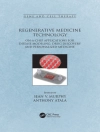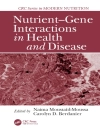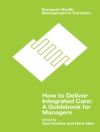The world’s problems are indeed world problems: social and environmental crises, global trade and politics, and major epidemics are making public health a pressing global concern. From this constantly changing scenario, global health diplomacy has evolved, at the intersection of public health, international relations, law, economics, and management—a new discipline with transformative potential. Global Health Diplomacy situates this concept firmly within the human rights dialogue and provides a solid framework for understanding global health issues and their negotiation. This up-to-the-minute guide sets out defining principles and the current agenda of the field, and examines key relationships such as between trade and health diplomacy, and between global health and environmental issues. The processes of global governance are detailed as the UN, WHO, and other multinational actors work to address health inequalities among the world’s peoples. And to ensure maximum usefulness, the text includes plentiful examples, discussion questions, reading lists, and a glossary. Featured topics include: The legal basis of global health agreements and negotiations. Global public goods as a foundation for global health diplomacy. Global health: a human security perspective. Health issues and foreign policy at the UN. National strategies for global health. South-south cooperation and other new models of development. A volume of immediate utility with a potent vision for the future, Global Health Diplomacy is an essential text for public health experts and diplomats as well as schools of public health and international affairs.
Mục lục
1. Global Health Diplomacy: An Introduction.- 2. Current Issues in Global Health Diplomacy.- 3. The History and evolution of global health diplomacy.- 4. Global Health Law.- 5. The New Dynamics of Global Health Governance.- 6. The Process and Practice of Negotiation.- 7. Human Rights and Equity: The Value Base of Global Health Diplomacy.- 8. New diplomacy for health: a global public goods perspective.- 9. Diplomacy and Global Health Security.- 10. Global Environmental Diplomacy: Comparing and Sharing.- 11. Global Trade and Health Diplomacy: Maximizing Cooperation and Minimizing Conflict through Coherent International Rules.- 12. The World Health Organization as a key venue for global health diplomacy.- 13. Instruments of global health governance at the World Health Organization.- 14. Instruments for Global Health Diplomacy in the UN System beyond the WHO.- 15. Global Health Diplomacy at the United Nations General Assembly.- 16. The EU as an actor in Global Health Diplomacy.- 17. The G8/G20 and Global Health Governance: extended fragmentation or a new hub of coordination.- 18. Civil Society Organizations, Global Health Governance and Public Diplomacy.- 19. Health is Global: A UK Government Strategy 2008/13.- 20. National Strategies for Global Health.- 21. Power shifts in Global Health Diplomacy and New Models of Development: South-South cooperation.- 22. Reflection: The Copernican Revolution: The changing relationship between foreign policy and health.
Giới thiệu về tác giả
Ilona Kickbusch is the Director of the Global Health Programme at the Graduate Institute of International and Development Studies, Geneva. She advises organisations, government agencies and the private sector on policies and strategies to promote health at the national, European and international level. She has published widely and is a member of a number of advisory boards in both the academic and the health policy arena. She has received many awards and served as the Adelaide Thinker in Residence at the invitation of the Premier of South Australia. She has recently launched a think-tank initiative “Global Health Europe: A Platform for European Engagement in Global Health” and the “Consortium for Global Health Diplomacy”. Her key areas of interest are global health governance, global health diplomacy, health in all policies, the health society and health literacy. She has had a distinguished career with the World Health Organization, at both the regional and global level, where she initiated the Ottawa Charter for Health Promotion and a range of “settings projects” including Healthy Cities. From 1998 – 2003 she joined Yale University as the head of the global health division, where she contributed to shaping the field of global health and headed a major Fulbright programme. She is a political scientist with a Ph D from the University of Konstanz, Germany.
Nick Drager, former Director of the Department of Ethics, Equity, Trade and Human Rights at the World Health Organization, is Honorary Professor, Global Health Policy at the London School of Hygiene & Tropical Medicine and Professor of Practice of Public Policy and Global Health Diplomacy at Mc Gill University. His work focuses on current and emerging public health issues related to globalization and health, especially global health diplomacy/governance, foreign policy and international trade and health. He is also Senior Fellow at the Global Health Programme at the Graduate Institute of International and Development Studies, Geneva. He serves as chair, keynote speaker at numerous international conferences; he lectures at Universities in Europe, North America and Asia; and is the author of numerous papers, editorials, and books in the area of global health and development. He has an M.D. from Mc Gill University and a Ph.D. in Economics from Hautes Etudes Internationales, University of Geneva.
Graham Lister is a Visiting Professor at the Faculty of Health and Social Care of London South Bank University. He gained an MSc in Management Science and a Ph D in the Faculty of Economics for his work on organisational behaviour at Imperial College London. He was formerly the partner responsible for health consulting at the international firm of Coopers & Lybrand and has worked in some 50 countries, including in Europe, East Africa, the Middle East, East Asia and Australia on aspects of health management and policy. He has also worked with the WHO, the World Bank and many international aid agencies in this field. As the coordinator for the Nuffield Trust programme “Global Health: a local issue” he helped to found and run the UK Partnership for Global Health. He works with Global Health Europe and has published a range of papers on aspects of global health including “European Perspectives on Global Health: a policy glossary” with Ilona Kickbusch.
Michaela Told is currently Executive Director of the Global Health Programme at the Graduate Institute of International and Development Studies, Geneva. Prior to moving into academia, she has been working more than 10 years with the Red Cross and Red Crescent Movement at local, regional and international level in all continents, most recently heading the Principles and Values Department of the International Federation of Red Cross and Red Crescent Societies. Earlier in her career, she worked with the Austrian Ministry of Foreign Affairs, Division of Development Cooperation and later served as Secretary General of an international women’s human rights NGO based in Geneva. In her current position as Executive Director of the Global Health Programme at the Graduate Institute she is responsible for the successful implementation of all activities of the Global Health Programme. She holds a MSW (International Social Work, School of Social Work, Vienna), a MCom (Development Economics, University of Economics and Business Administration, Vienna), and a MA in Development Studies (Women & Development, Institute of Social Studies, The Hague).












